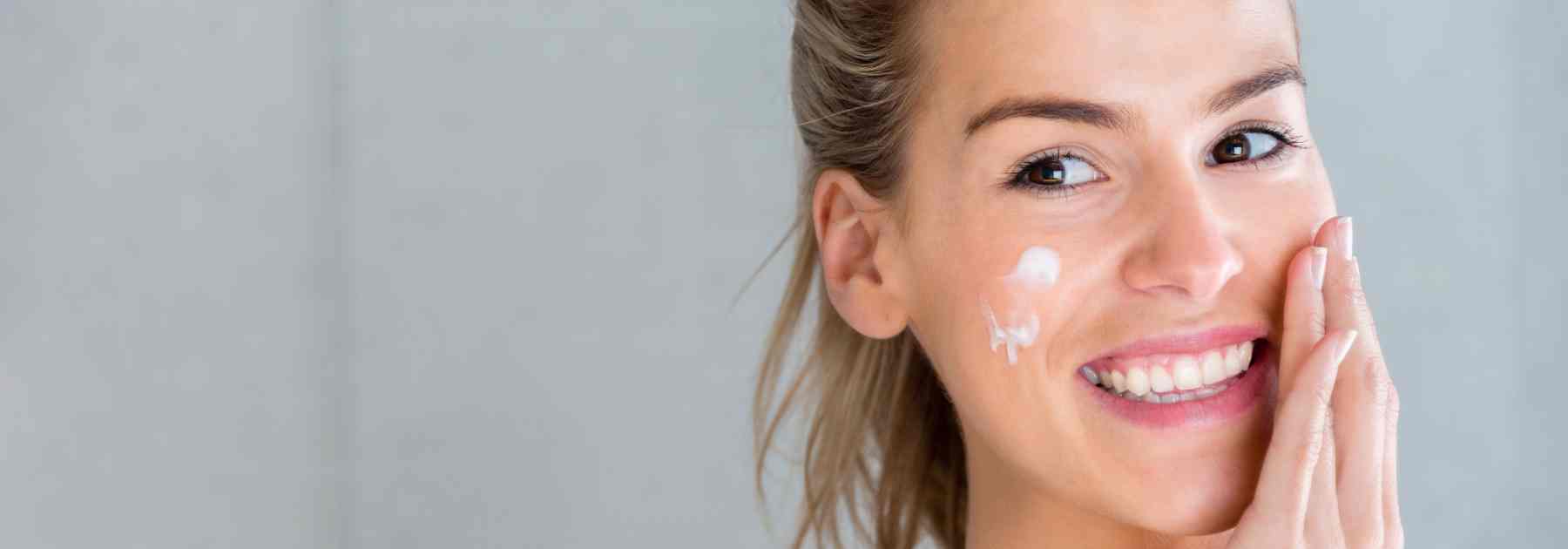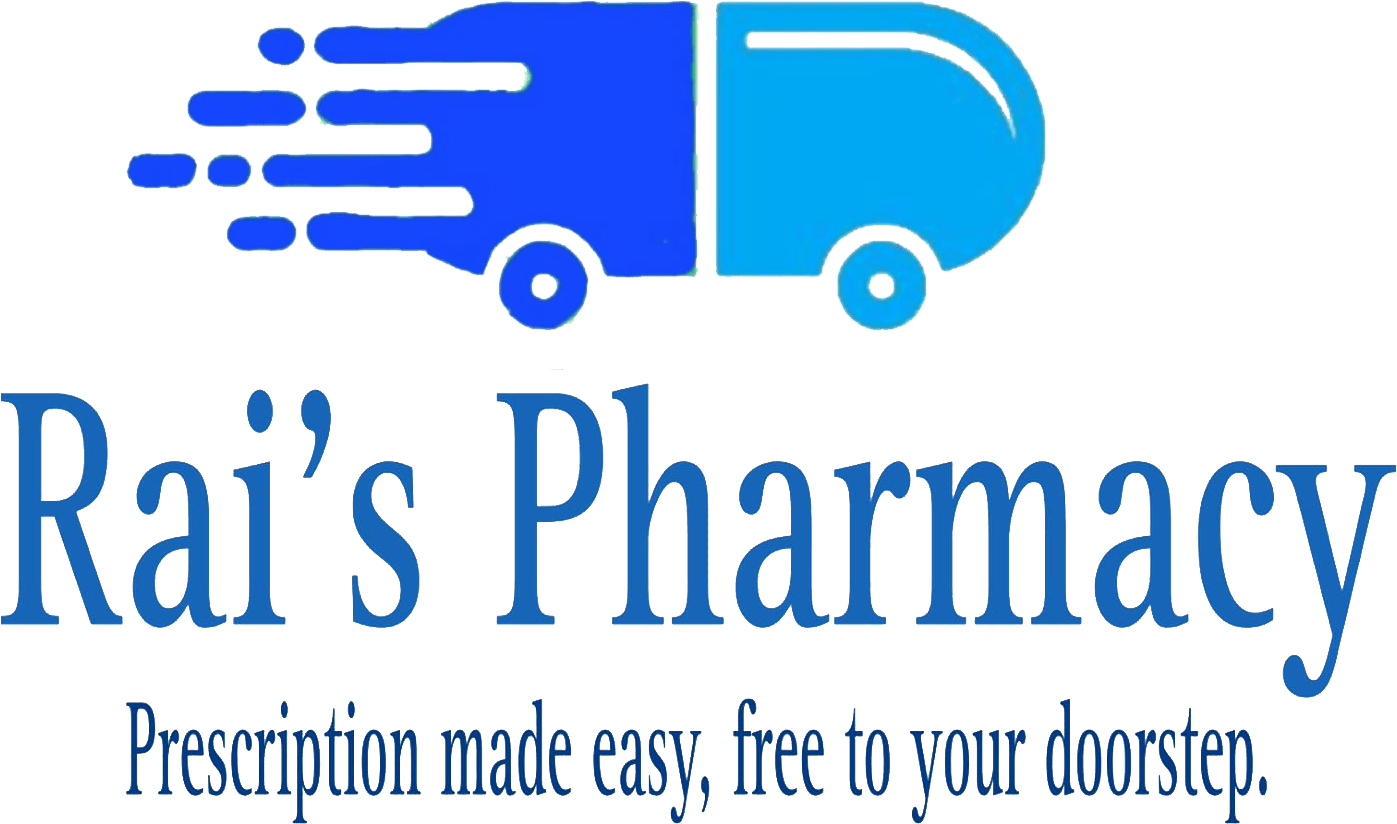Acne Treatments
Acne is one of the most common skin conditions, affecting millions of individuals at some point in their lives. It can range from mild breakouts to severe cases, causing not only physical discomfort but also emotional distress. Fortunately, various acne treatments are available to help manage and reduce symptoms, leading to clearer, healthier skin. At Rai’s Pharmacy, we offer expert advice on acne treatments and skincare solutions that are tailored to your needs, ensuring that you can tackle this condition with confidence.
What Causes Acne?
Acne occurs when the hair follicles in the skin become blocked with oil, dead skin cells, and bacteria. The sebaceous glands, which produce natural oil (sebum) to keep the skin lubricated, can sometimes produce too much oil, leading to clogged pores. When these pores are blocked, acne-causing bacteria can thrive, resulting in inflammation and the appearance of spots, blackheads, whiteheads, cysts, and nodules.
Several factors contribute to the development of acne:
Hormonal Changes: Hormonal fluctuations during puberty, menstruation, pregnancy, or due to conditions such as polycystic ovary syndrome (PCOS) can trigger increased sebum production, leading to acne.
Genetics: If acne runs in your family, you may be more likely to experience it.
Stress: Stress doesn’t directly cause acne, but it can worsen existing breakouts by increasing levels of hormones that stimulate oil production.
Diet: Although research on the link between diet and acne is ongoing, some studies suggest that high-glycaemic foods, dairy products, and sugary snacks may contribute to breakouts.
Cosmetics and Skincare Products: Using oil-based or comedogenic products can block pores and exacerbate acne.

Types of Acne
There are several types of acne, each requiring different acne treatments depending on severity:
Blackheads and Whiteheads: Blackheads are open comedones that occur when clogged pores are exposed to air, turning the blockage black. Whiteheads are closed comedones, where the blockage remains beneath the skin’s surface.
Papules and Pustules: Papules are small, red, inflamed bumps, while pustules contain pus and are often red at the base.
Nodules and Cysts: These are more severe forms of acne, where deeper layers of the skin are affected. Nodules are hard, painful lumps, and cysts are filled with pus and can lead to scarring if not treated properly.
Over-the-Counter Acne Treatments
For mild to moderate acne, over-the-counter (OTC) products are often the first line of defence. These products typically contain active ingredients designed to reduce oil production, remove dead skin cells, or kill bacteria. Some of the most common ingredients in OTC acne treatments include:
Benzoyl Peroxide: This ingredient works by killing acne-causing bacteria and reducing inflammation. It is available in various strengths and can be found in gels, creams, and face washes. Benzoyl peroxide can be effective for reducing pimples, but it may cause dryness or irritation, so it’s best to start with a lower concentration.
Salicylic Acid: Salicylic acid helps to exfoliate the skin and unclog pores, making it particularly effective for treating blackheads and whiteheads. It’s a gentle exfoliant found in many cleansers, toners, and spot treatments, though it may cause mild dryness or irritation in sensitive skin.
Retinoids: Retinoids, derived from Vitamin A, increase cell turnover and prevent clogged pores. OTC retinoids like adapalene are effective in treating mild to moderate acne. These products are best used at night and may cause initial irritation, so it’s important to apply a moisturiser alongside them.
Prescription Acne Treatments
For moderate to severe acne, prescription medications may be necessary, particularly if OTC products are not effective. Prescription treatments include:
Topical Antibiotics: These are applied directly to the skin and help reduce acne by killing bacteria and reducing inflammation. Clindamycin and erythromycin are common antibiotics used in acne treatments, often combined with benzoyl peroxide to minimise bacterial resistance.
Oral Antibiotics: In more severe cases of acne, oral antibiotics such as doxycycline or tetracycline may be prescribed. These antibiotics work by targeting bacteria from within the body, reducing inflammation and preventing new breakouts.
Oral Contraceptives: For women whose acne is linked to hormonal fluctuations, oral contraceptives can help regulate hormones and reduce breakouts. These pills contain oestrogen and progesterone, which work to decrease sebum production.
Oral Retinoids (Isotretinoin): Isotretinoin, commonly known as Accutane, is a powerful oral retinoid used to treat severe cystic acne. It works by shrinking the sebaceous glands, dramatically reducing oil production. While isotretinoin can be highly effective, it comes with potential side effects such as dry skin, joint pain, and an increased risk of birth defects, so it’s typically prescribed for severe cases under close medical supervision.

Lifestyle Changes to Support Acne Treatment
In addition to using acne treatments, making simple lifestyle changes can support clearer skin:
Maintain a Skincare Routine: Keeping the skin clean is essential. Use a gentle cleanser and avoid over-scrubbing, as harsh scrubbing can irritate the skin and worsen acne.
Moisturise: Even if your skin is oily, using a non-comedogenic (non-pore-clogging) moisturiser can help prevent dryness caused by acne treatments.
Stay Hydrated: Drinking plenty of water helps keep your skin hydrated and healthy, which can assist in the healing process.
Watch Your Diet: Although the relationship between diet and acne isn’t fully understood, eating a balanced diet and avoiding excessive consumption of high-sugar and high-fat foods may improve your skin.
Manage Stress: Since stress can exacerbate acne, managing stress through relaxation techniques, regular exercise, or meditation may help keep breakouts under control.
Professional Acne Treatments
For more severe cases, advanced acne treatments may be the best course of action. These treatments may include chemical peels, which use acids to remove the outer skin layer and reduce acne scars. Chemical peels also promote the growth of healthier skin. Laser therapy targets acne-causing bacteria and reduces inflammation, improving skin texture and preventing future breakouts. Additionally, microdermabrasion exfoliates the skin’s surface, removing dead skin cells and encouraging the regeneration of smoother, clearer skin.
Conclusion
Acne is a common but treatable condition that can be managed with the right approach. From over-the-counter remedies like benzoyl peroxide and salicylic acid to prescription medications like antibiotics and oral retinoids, there are many acne treatments available to suit different skin types and severity levels. At Rai’s Pharmacy, we provide expert advice and personalised treatment plans to help you find the best solution for your acne.
Get in touch to find out how we can help you explore your options.
With the right care, you can achieve clearer, healthier skin and restore your confidence.

